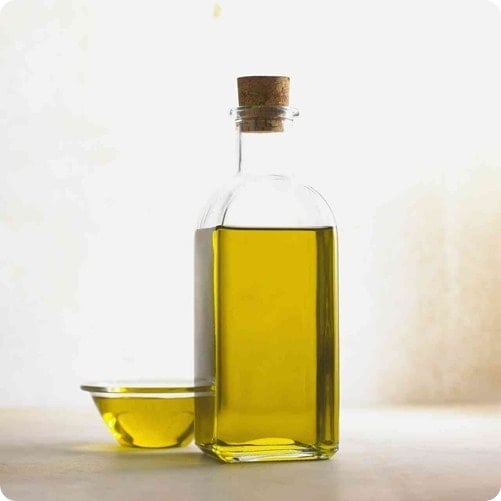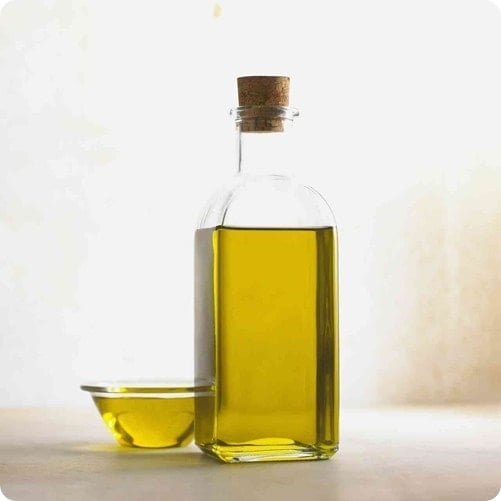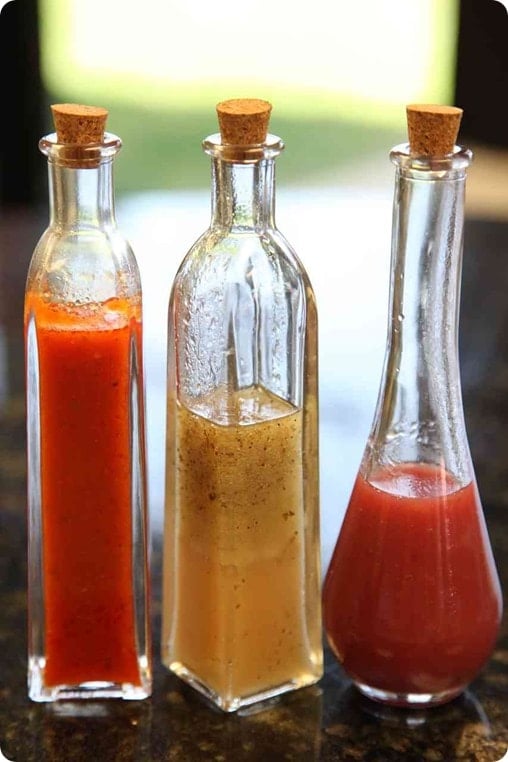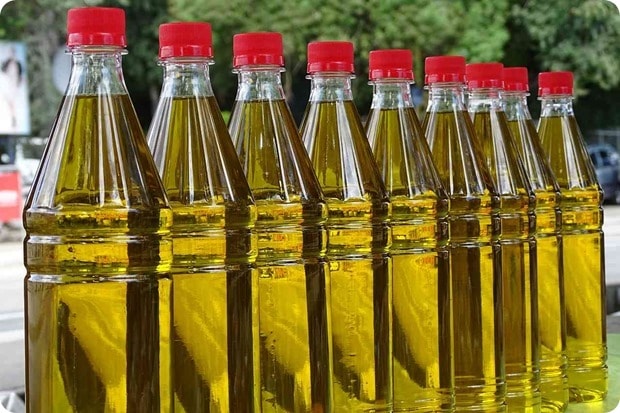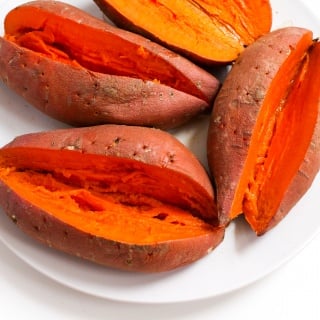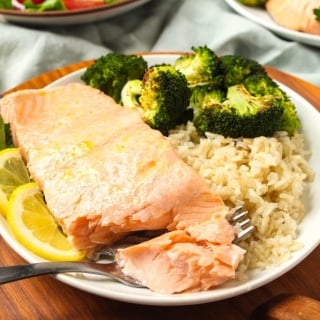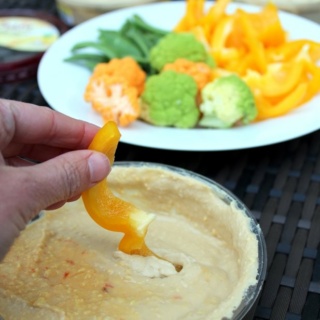Hi friends! I wanted to pop in this morning with a post that I’ve been meaning to write for about a year now: breaking down which oils to use when. Specifically, the best cooking oils for high heat, baking, and salad dressing.
This is a topic I always found a little confusing, so researching and writing this post was helpful for me, too. 🙂 I’ve organized the oils into categories based on what you’re going to do with them (salad dressings vs. stove top cooking vs. baking.). I thought that was most helpful.
The key with determining what oil to use when is looking at its smoke point. This is the temperature at which that oil starts to break down.
You want to avoid this breakdown point, because when the fat breaks down, it will release free radicals. This can give the oil/dish an acrid flavor, too.
In general, unrefined oils (like those in the salad/dipping category) have lower smoke points than refined oils. So, you want to avoid using them in high heat situations.
Best Oils for Salad Dressings and Dipping
Oils are extracted from nuts and seeds through mechanical pressing. Cold-pressed/raw/”virgin” oil is bottled immediately after this process, it retains its minerals, enzymes, and other compounds.
These compounds don’t hold up well to heat, and can make the oil more susceptible to rancidity. But they add nutrients and a richer flavor. So if you’re making a heat-free dish like a salad or a dipping sauce, you’ll want to use cold-pressed/raw/virgin oil.
Here are some examples of oils that are great in salad dressings and for dipping, along with their smoke points to illustrate why they fit into this category. I make simple salad dressings at home by mixing one of these oils + lemon juice + balsamic vinegar + dijon mustard. Delicious!
- Flaxseed Oil (225°F)
- Extra Virgin Olive Oil (320°F)
- Pumpkin Seed Oil (320°F)
- Unrefined Walnut Oil (320°F)
Best Cooking Oils for High Heat (Stir Frying or Sautéing)
Refined oils have higher smoke points, which makes them better for sautéing and frying.
To produce an oil with a higher smoke point, the oil is processed to remove some of those extraneous compounds, like minerals and enzymes. This gives the oil a longer shelf life, a more neutral flavor, and a higher smoke point. One example of this is Extra Light Olive Oil.
Here are some examples of oils that are good for stir frying, along with their smoke points.
You’ll want to look for oils with at/above about a 400°F smoke point when cooking at high temperatures, like stir frying. You can get away with a slightly lower smoke point (about 350°F – like that of Coconut Oil) for sautéing. This is because the pan won’t get quite as hot as with stir frying.
- Avocado Oil (520°F)
- Extra Light Olive Oil (468°F) or Virgin Olive Oil (420°F). You’ll want to avoid stir frying with Extra Virgin Olive Oil, as its smoke point is only 320°F. (This was news to me – better go buy some Extra Light or Virgin Olive Oil!)
- Vegetable oils like Canola Oil (400°F), or Soybean, Sunflower, or Safflower Oils (all 450°F)
- Dark Sesame Oil (410°F) or Peanut Oil (450°F) – great for Asian dishes due to their flavor.
- Grapeseed Oil (420°F)
- Macadamia Nut Oil (413°F) – also tasty in salad dressings!
Best Oils for Baking
You can get away with a lower smoke point oil for baking, so the key here is flavor. You’ll want a neutral oil – something that’s not too overpowering (unless that’s the point, like in my Citrus Zest Cake made with blood orange olive oil)!
- Canola Oil
- Grapeseed Oil
- Coconut Oil (350°F) – a good vegan alternative to butter, although not exactly a neutral flavor, so this one depends on the dish. You can’t usually taste coconut oil in baked goods, though, unless you use a ton of it)
What are your favorite oils? How and when do you use them?


